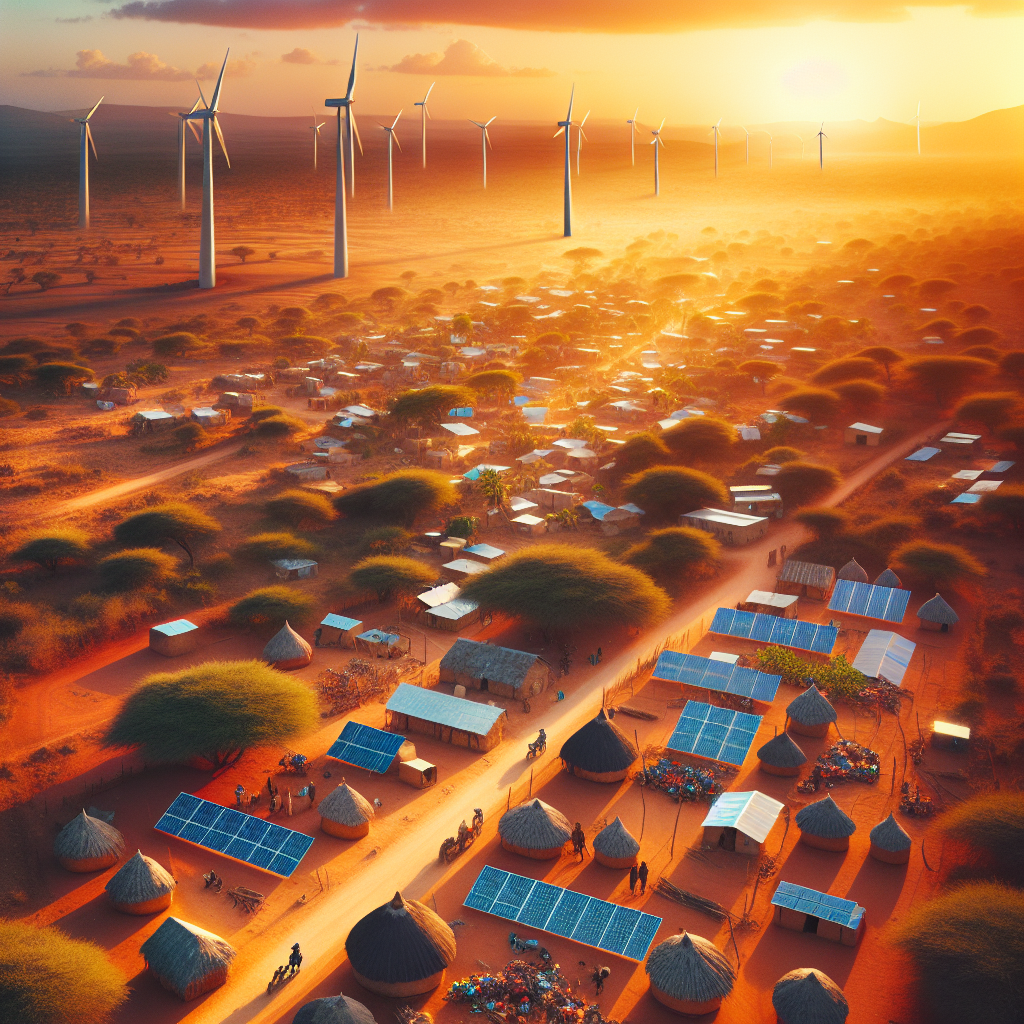
World Bank Sets Africa Terms to Win $40 Billion in Power Finance
The World Bank and African Development Bank (AfDB) have set ambitious terms for African nations aspiring to secure a monumental $40 billion finance package aimed at eradicating electricity shortages across the continent. Facing a critical energy crisis, many African countries are gearing up to meet the conditions laid out by these financial powerhouses.
Mission 300: Electrifying Africa
A strategic initiative known as Mission 300 is at the heart of this financing ambition. The program is designed to deliver electricity to an estimated 300 million Africans by 2030. This initiative is bolstered by a $30 billion commitment from both the World Bank and the AfDB. In addition, they are actively seeking an additional $10 billion from private financial institutions to ensure comprehensive funding.
Key Requirements for Funding
- Competitive Tenders: Nations must pledge to facilitate competitive tenders to enhance the transparency and efficiency of funding allocation.
- Comprehensive Plans: Thirteen African nations are required to present detailed plans at an upcoming key conference. These plans should outline the steps they will take to align with the program’s objectives.
This financial injection is not solely a charitable act; it’s an investment aimed at catalyzing economic growth and sustainable development across the African continent.
The Impact on African Infrastructure
Africa’s electricity crisis has often been a bottleneck inhibiting economic advancements and improvements in living standards. By addressing this with significant financial support, both multilateral institutions aim to unlock the potential locked within numerous industries and communities throughout Africa.
The Role of Private Sector
Engagement from the private sector is crucial. The expectation of gaining $10 billion from private institutions indicates a strategic move to involve diverse stakeholders in Africa’s developmental journey. This collaboration will ensure that the continent does not solely rely on governmental and multilateral sources for energy solutions.
A Sustainable Path Forward
Commitment to sustainable energy practices forms the backbone of Mission 300. A focus on renewable energy sources like solar and wind power is likely to dominate the projects emerging from this venture. This not only aims to alleviate the current electricity issues but also positions Africa as a global leader in renewable energy.
Immediate Implications for Stakeholders
- Nations are expected to enhance their legislative frameworks to accommodate and support large-scale investment and infrastructure projects.
- Local industries stand to benefit immensely from reduced energy costs and improved power reliability.
- The involvement of international businesses will potentially bring in cutting-edge technologies and management practices.
The ripple effects of these developments could span decades, influencing economic policies and national budgets across the continent.
Looking Ahead
The commitment to electrify Africa is not merely a philanthropic endeavor; it is a testament to the shared vision of transforming the continent’s economic landscape. Mission 300 could lead to unprecedented growth and prosperity if executed with strategic foresight and a multi-stakeholder approach.
Both public and private sectors have a pivotal role to play. The success of this mission hinges upon their ability to work cohesively, balancing commercial interests with public welfare objectives.
Conclusion
The Africa of tomorrow hinges on bold initiatives today. With the collaboration of the World Bank, AfDB, and private institutions, the path to a brighter, electrified future is being paved. As Africa prepares to meet these challenges head-on, the world watches, ready to witness the transformation of a continent brimming with untapped potential.
By implementing structured plans and competitive processes, African nations are not just attracting financial support but also driving innovation in energy solutions. This marks a new era in the continent’s history, characterized by sustainable development and modernized infrastructure.
Stay tuned for updates as Africa works to fulfill the promises of Mission 300 and reshape its energy landscape for generations to come.
Source: https://www.bloomberg.com/news/articles/2025-01-16/world-bank-sets-africa-terms-to-win-40-billion-in-power-finance


Your point of view caught my eye and was very interesting. Thanks. I have a question for you.
Thank you for your sharing. I am worried that I lack creative ideas. It is your article that makes me full of hope. Thank you. But, I have a question, can you help me?
I don’t think the title of your article matches the content lol. Just kidding, mainly because I had some doubts after reading the article.